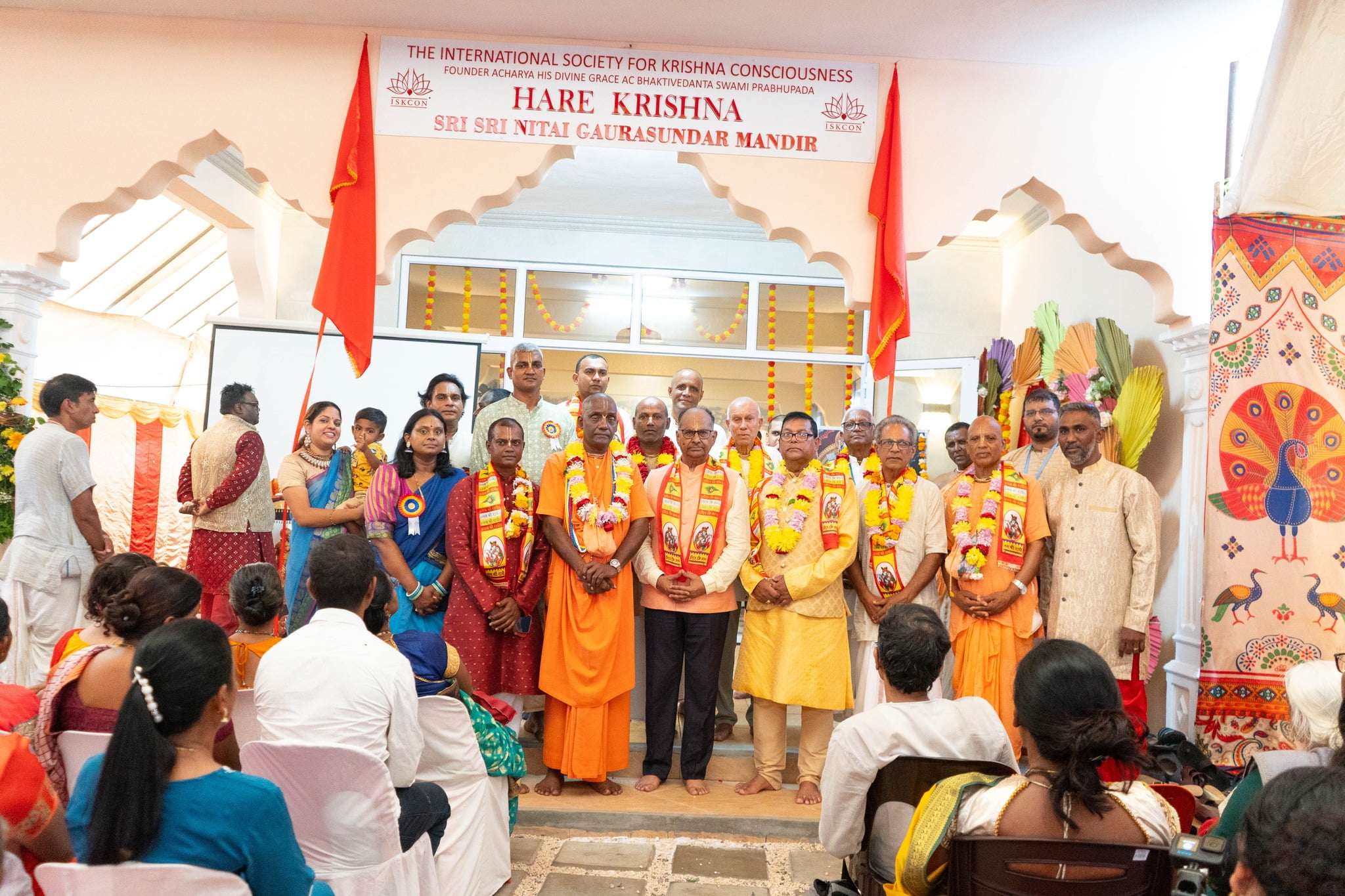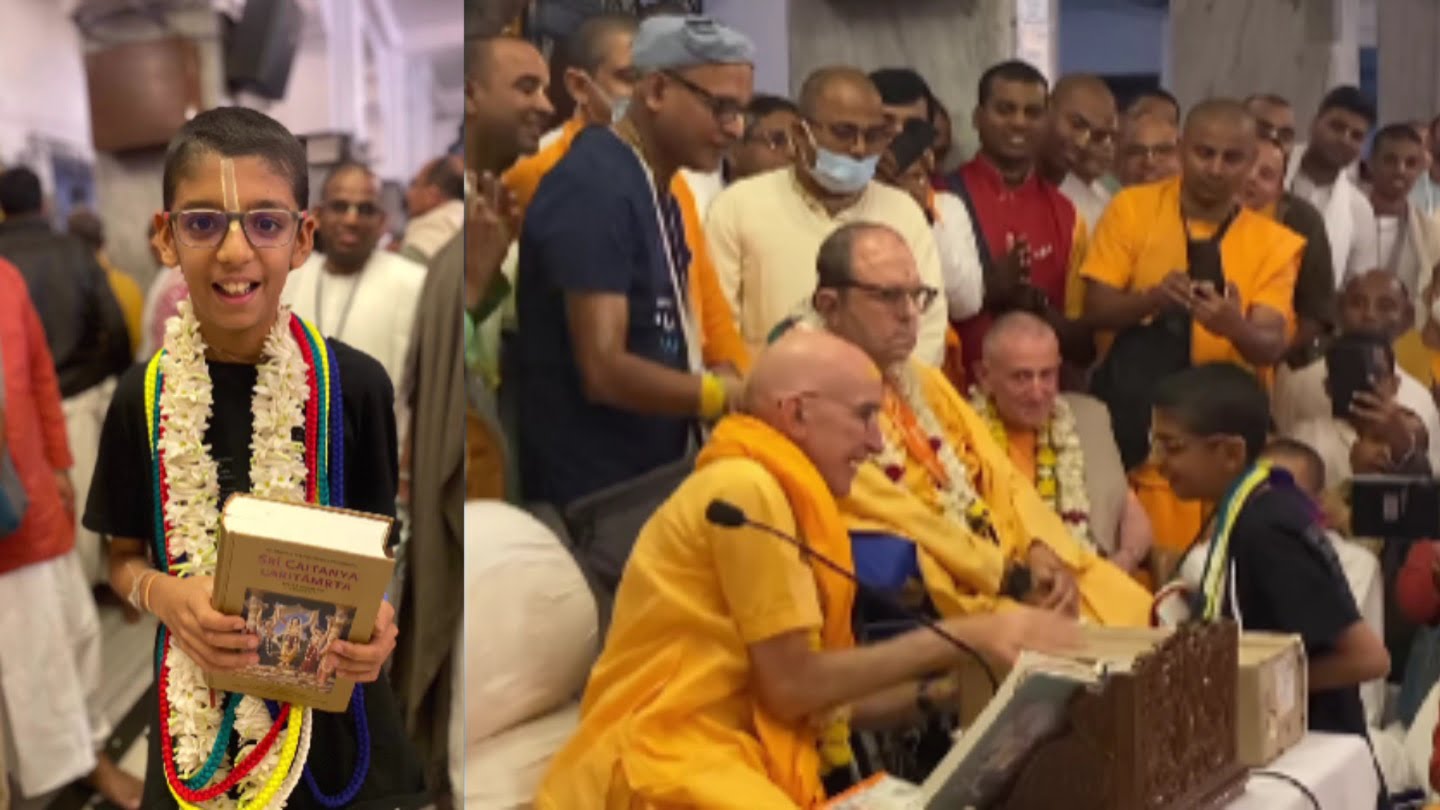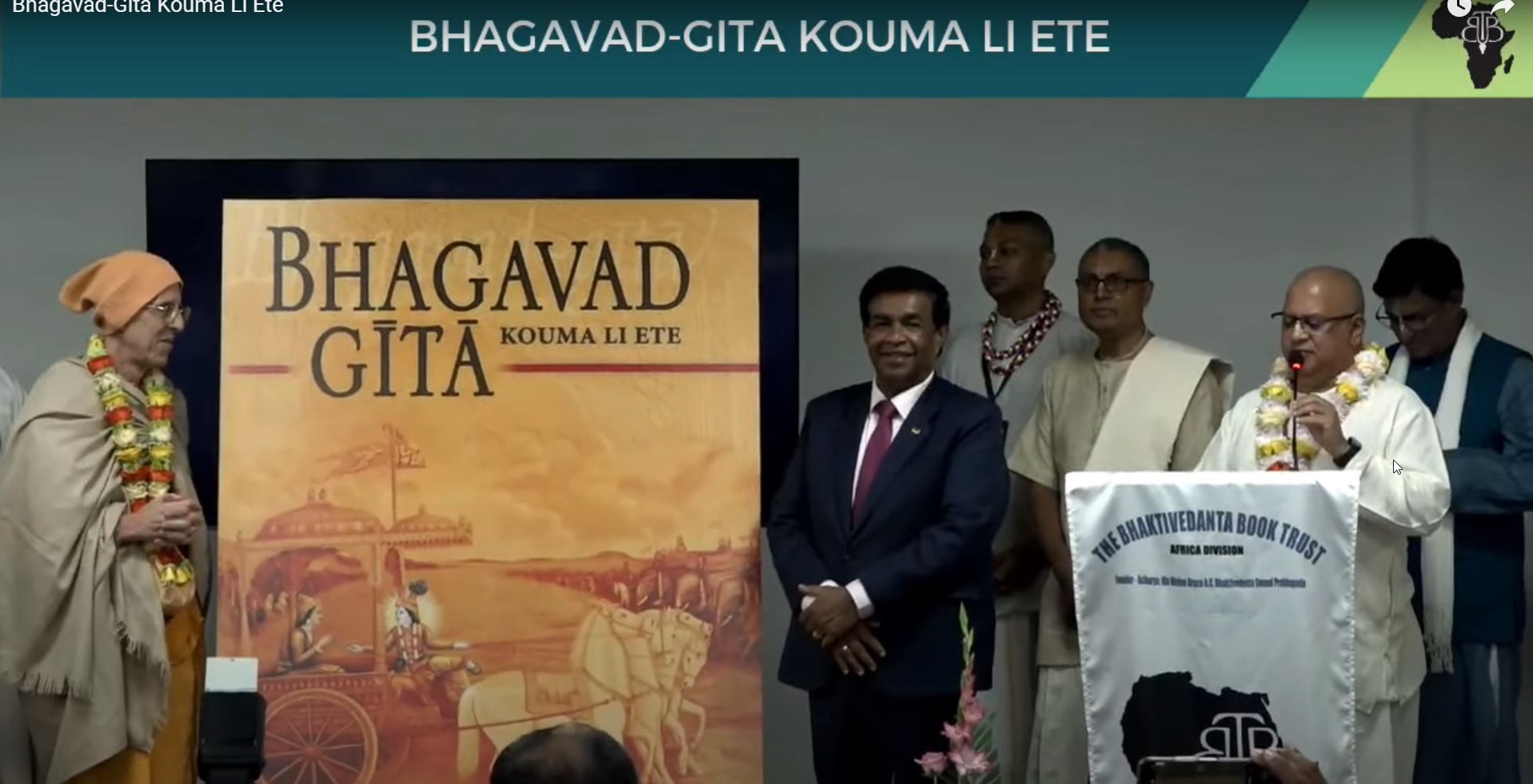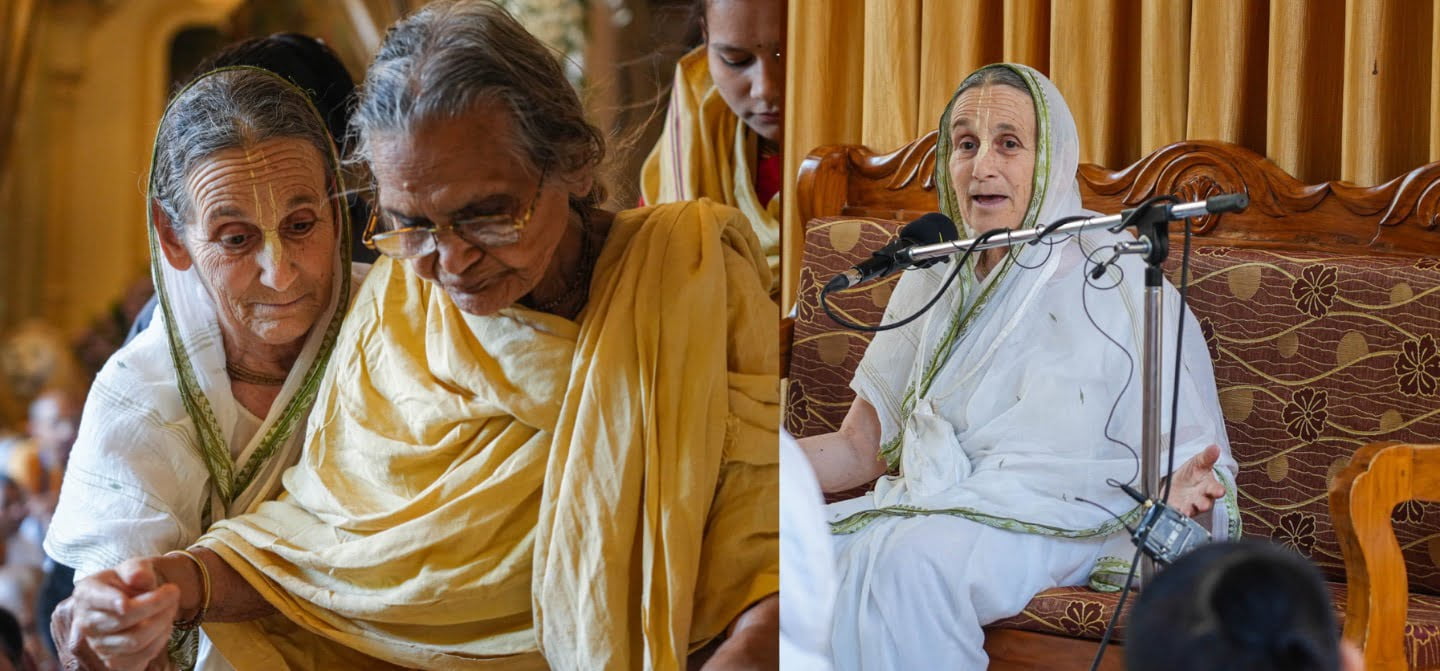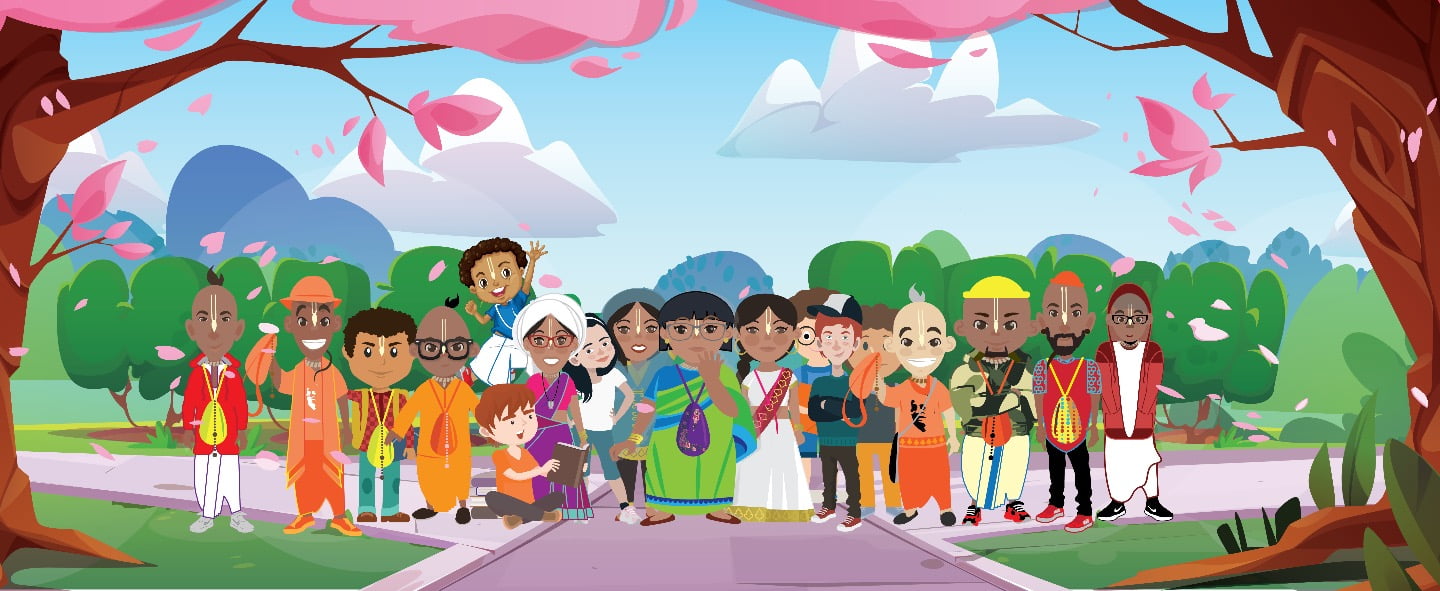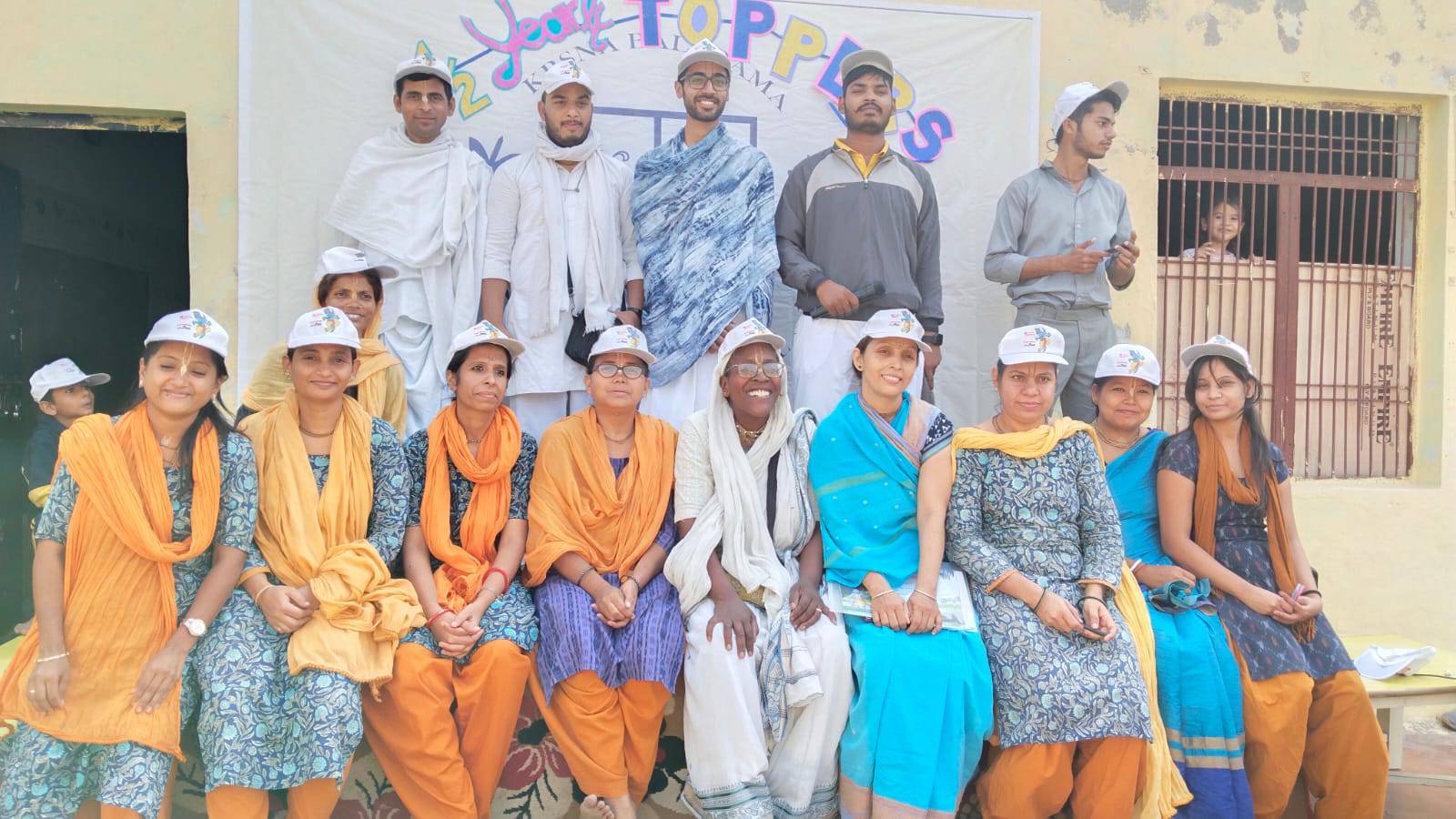Princeton Diwali Brings East and West Together
By Madhava Smullen | Nov 28, 2010
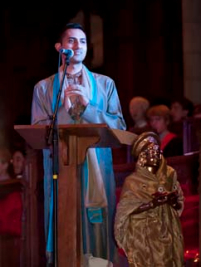
New Jersey, USA – Over 500 people—including students, faculty, their friends and family, and members of the local community—attended Princeton University’s third annual Diwali celebration on Saturday November 13th.
The event was part of a continued effort by the school to enhance support for Princeton students from a variety of backgrounds and religious traditions. Support for Hindu students reached a new high back in August 2008, whenVineet Chander—better known in ISKCON as Venkata Bhatta Dasa—was appointed as the
University’s first Coordinator of Hindu Religious Life. Vineet has also served as ISKCON’s North American Communications Director.
That same year, Princeton celebrated its first official Diwali in the magnificent Princeton University Chapel, the first time the church hosted a non-Christian service in its eighty-year history.
This year’s Diwali—considered the Hindu New Year, and described in the devotional epic Ramayana as the return of Lord Rama to his people after years of exile—was also held in the chapel.
The event began at 7:30pm, with an acappella bhajan called Ayodhya Vasi Rama performed by internationally acclaimed world-music groups Gaura Vani & As Kindred Spirits and the Mayapuris, who grew up in ISKCON amidst Hindu culture.
An invocation, “Sarasvati Vandanam,” by student Mohit Manohar, then preceded a ceremonial lighting of the lamps Diwali is famous for by VIP guests Andrew Koontz (Princeton Borough Council President) and Karen Woodbrige (University Director of Community Relations). All attendees also had an opportunity to offer a candle at the altar to pictures of Sita-Rama, Radha-Krishna, and Laksmi Devi.
Welcoming the crowd, Vineet Chander noted that Diwali is a very sacred day for those of the Hindu, Sikh, and Jain faiths. “And, today,” he said, “I’m very proud to say that it is a day of occasion, of celebration, not only for the Hindu community, but for the entire Princeton community.”
Devotional entertainment at the event included a classical Oddissi Dance by Dhanya Salem of the Kalamandir Dance Company, and bhajans by Raaganjali, an ensemble group of Princeton students who sing and play musical instruments.
But perhaps the most intriguing element of the celebration was its theme of “East meets West.”
“It was exciting for guests to experience a harmonizing of Hindu traditions and ritual and Western influenced art form,” Chander says. “The celebration honored the roots of Diwali, and at the same time recognized that the spirit of the holiday can find new expression when we expand our horizons.”
To this end, Bala Devi Chandrashekar, the artist in residence at the University’s Carl A. Fields Center for Equality and Cultural Understanding, performed a dance drama that paired classical Indian dance form with a composition by Tchaikovsky.
Another highlight was a collaboration between Gaura Vani, The Mayapuris and the Princeton University Chapel Choir, performing the bhajan “Sita-Rama.”
In the meditative, lamp-lit atmosphere of the chapel, Choir Director Penna Rose opened the ten-minute piece by conducting her sixty-person choir as they sang the well-known chant in their soaring, angelic voices.
Gaura Vani and the Mayapuris then joined in, adding their traditional kirtan instruments and arrangement. They were accompanied by saxophone player Ryan Smith—a student from Rutgers University—and composer John McDowell, who produced several albums with popular kirtan artist Krishna Das, and composed the soundtrack to the Academy-Award-winning documentary Born Into Brothels.
Throughout the performance, Penna Rose and Gaura Vani took cues from each other, as the choir slipped in and out amidst the building rhythm of the mantra.
For the choir, the rhythmic and structural ‘ad-lib’ nature of kirtan was something quite new and different.
“It was wonderful to be able to improvise with so many people,” says Rose, who recalls that Gaura Vani recorded the chant on his phone so that she could
transcribe it into written music for the choir. “It was just an amazing experience all around. None of us had ever been to this kind of service before. The kids loved doing it—it was very different music than what we generally sing on Sunday mornings! All that percussion just made it a lot more fun!”
“It was a really beautiful coming together of different traditions, both musically and spiritually,” Gaura Vani adds. “It was the first time the choir had participated in a Hindu event on campus. And it was a unique honor for us, a primarily kirtan group, to be arranging music for a Christian Choir at Princeton.”
The performance was followed by an arati ceremony offered by Sri M.G. Prasad, co-founder of the Hindu Temple and Cultural Society in Bridgewater, New Jersey.
Princeton’s Diwali celebration then culminated in an energetic kirtan with the Mayapuris, during which everyone joined in with the chanting of the Hare Krishna mantra, which includes the names of Rama and his wife Sita.
“Lord Rama, as one of the most prominent incarnations of God, is also one of the most beloved, standing for righteousness, honesty, and doing good,” says Gaura Vani. “So when you bring together Diwali, Rama, and Rama’s names in kirtan, you have a magical combination.”
“An event like this speaks to both the existing and growing relevancy of Hinduism in the world today,” he continues, “As well as to the attraction of kirtan, which is also growing dramatically—even outside of the Hindu community.”
Meanwhile, the event also speaks to how the Princeton University chapel—which was founded as a Presbyterian house of worship—has since grown to become a truly ecumenical and inter-religious worship space for students and the wider Princeton community.
“While hosting this event, I’ve met guests who regularly attend services at the chapel, but who had never witnessed Hindu worship,” says Vineet Chander. “At the same time, I’ve also met members of the Indian community who had lived in Princeton for decades, but had never set foot in the chapel. By bringing folks like this together under a common banner, and by honoring a Hindu holiday in Princeton’s shared sacred space, we are striving to lead the way in warmly welcoming the Hindu community into America’s pluralistic landscape.”



